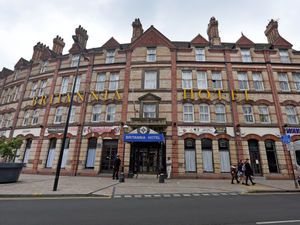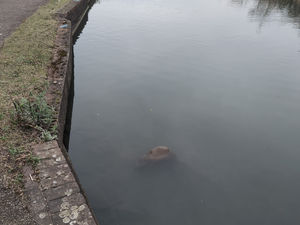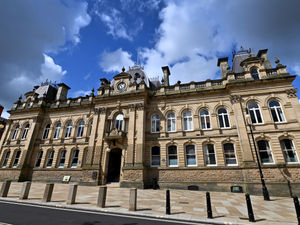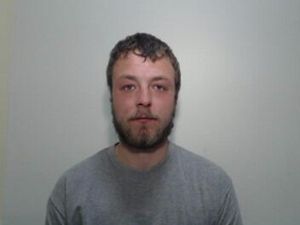Heavily pregnant asylum seekers helped by Wolverhampton midwives
Midwives from Wolverhampton have rallied to support asylum seekers staying in the city, some of whom arrived heavily pregnant or have suffered genital mutilation.

Around 250 asylum seekers are being housed in the Britannia Hotel in Wolverhampton city centre as part of the Home Office’s dispersal programme.
Staff from The Royal Wolverhampton NHS Trust, which runs New Cross Hospital, were asked to assess the group - around half of which are children,
Charlotte Leo, matron at the trust, then developed a pathway for pregnant women from Eritrea, Ethiopia, Iran, Iraq and Ukraine to join the trust’s maternity system and set up a dedicated antenatal clinic.
Some of the women were in the advanced stages of pregnancy and many had suffered genital mutilation, while one reported sitting in a boat full of cold water for 12 hours.
“We were informed on the Thursday that the families had arrived and assumed there would be pregnant women and children. Within a couple of days, we made plans and went to the hotel," Charlotte explained.
She worked alongside a team of maternity staff and a health visitors who spent their weekend going from room to room to assess each family’s needs.
It became clear that the needs of the first asylum seekers to arrive were not just limited to health issues but included social and financial problems as well as clothing and shoes.
“The residents had travelled in small boats only had the clothes they were wearing,” said Charlotte.
“One woman had been sitting in cold water for 12 hours because the boat had leaked and starting filling with water, another had lost their medication in the sea.
“We undertook emergency appointments within the hotel and identified families requiring midwifery and health services.
"We put a call out for donations to maternity staff and received approximately 16 car loads of clothes and other necessary items.
“Midwives were aware of which families needed what and spent their own time sorting through donations and allocating required items to the families in need.”
Council leaders from across the region had expressed their anger at the asylum seekers being temporarily housed in areas where local authorities are unable to offer enough support.
Serco, which runs the asylum seekers dispersal scheme for the Home Office, said it had been left with "no alternative" but to use hotels due to "significant increases" in the number of people arriving in the UK. It is planning to move them into social housing "as rapidly as possible".
Staff from New Cross took the initiative and linked with a Charity called Sharing is Caring, run by midwife Sunita Banga, who collected and distributed clothes, nappies, baby wipes and baby food.
Language barriers meant the team had to call on the support of interpreters to help assess the condition of the women.
“There were real barriers because the residents spoke a range of languages, requiring interpreting services. Interpreting services were utilised and literature was translated into various languages, to ensure women and their families had up to date and evidence-based information” said Charlotte.
“The families arrived with additional needs. Some women were in advanced stages of pregnancy, we saw high incidence of female genital mutilation, some have mental health issues and others had complex conditions, so we needed the input of obstetric consultants.
“We developed a plan whereby the pregnant women, and their families, would be transported to the hospital and it was clear this gave us an opportunity to address other health issues. We worked with Kirsty Lewis, Senior Matron 0-19 services and the vaccination team, to ensure families were seen by a range of specialities: maternity and health visiting, as well as Covid-19 vaccinators at a single appointment.”
Once the families' needs were identified, their health was monitored and Ward D18 at New Cross Hospital was set aside for children’s toys and light refreshments, while the hotel provided packed lunches for everyone.
“It was a bespoke antenatal clinic, which was a real team effort,” added Charlotte. “Transport services at the trust allocated a driver to collect the families, and consultant obstetricians, sonographers and midwives gave up their own time to ensure the women were seen and ensured that they felt safe and cared for.
“I’m really proud of the response to the initial call for support and the way the bespoke clinic addressed the needs of the families – I’ve reached out to other trusts and we appear to be the only trust who have achieved such a service. It was a huge co-ordinated effort, mobilised very quickly.”
The majority of the women will continue to be cared for before, during and after the birth of their children.




